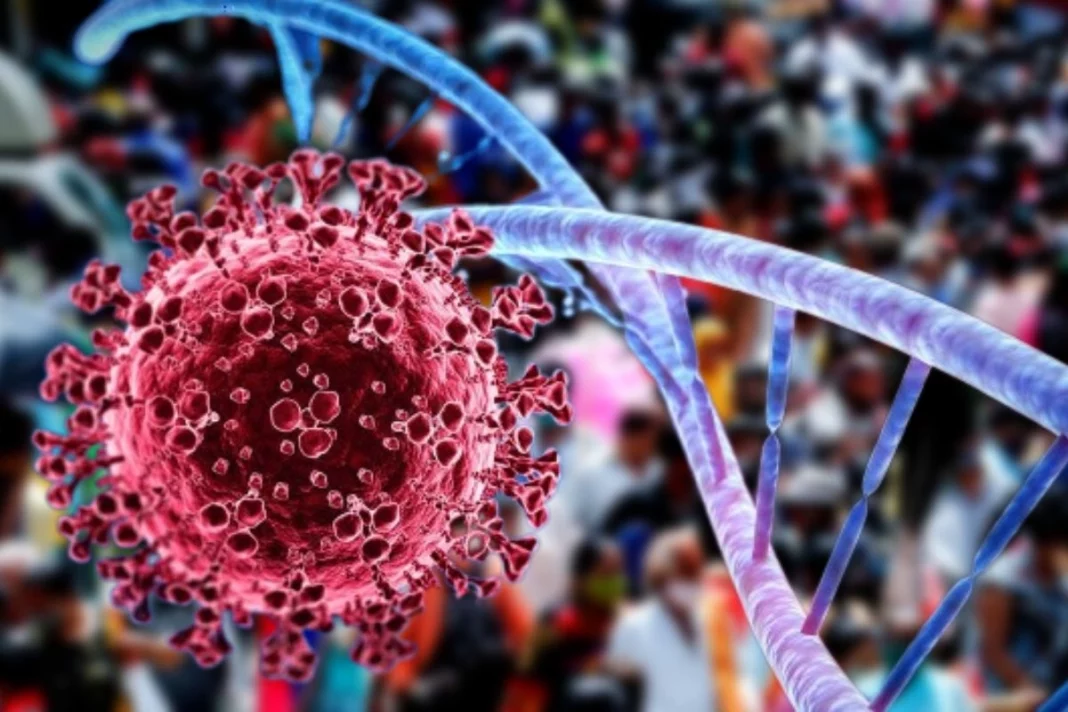Covid-19: The COVID-19 outbreak is still a public health emergency of global concern, according to the World Health Organization on Monday. The UN organization acknowledged that the virus is “probably at a transition point,” but it wants to make sure that “this transition is navigated carefully and potential negative consequences are mitigated.”
COVID-19 is still a serious infectious disease
The International Health Regulations (2005) Emergency Committee held its 14th meeting on Friday, January 27, to discuss the coronavirus disease (COVID-19) pandemic, and the WHO statement was released following that meeting. It said, “The WHO Director-General concurs with the advice offered by the Committee regarding the ongoing COVID-19 pandemic and determines that the event continues to constitute a public health emergency of international concern (PHEIC).” “According to the statement, the Committee concurred that COVID-19 is still a serious infectious disease with the potential to seriously harm people’s health and healthcare systems. The Committee talked about the potential negative effects that could happen if the PHEIC was terminated, whether the continuation of a PHEIC is necessary to maintain international attention to COVID-19, and how to transition in a safe way, according to the WHO.
Long-term public health action is critically needed
According to the statement, the Committee acknowledged that the COVID-19 pandemic may be nearing an inflection point because achieving higher levels of population immunity worldwide, either through infection or vaccination, may help to reduce the impact of SARS-CoV-2 on morbidity and mortality. However, it added that “long-term public health action is critically needed” and that there is “little doubt that this virus will remain a permanently established pathogen in humans and animals for the foreseeable future.”
WHO also made some Temporary Recommendations which are as follows:
- Keep up the momentum for COVID-19 vaccination in accordance with the evolving SAGE recommendations for the use of booster doses to ensure 100% coverage of high-priority groups. States The integration of the COVID-19 vaccination into life-course immunisation programmes should be planned by the parties.
- enhance the SARS-CoV-2 surveillance data reporting to WHO. Better data are required to: identify significant changes in COVID-19 epidemiology; detect, evaluate, and monitor emerging variants; and comprehend the burden of COVID-19 globally.
- Increase use of medical countermeasures and make sure they are always available.
- To prevent the occurrence of a panic-neglect cycle, maintain a strong national response capability and plan for upcoming events.
- Continue collaborating with local governments and leaders to combat the infodemic and successfully implement public health and social measures that are risk-based (PHSM).
- Continue to modify any additional precautions for international travel based on risk assessment, and refrain from requiring evidence of COVID-19 vaccination as a prerequisite for travel abroad.
- Continue to support research to understand the full spectrum, incidence, and impact of post-COVID-19 conditions and to develop appropriate integrated care pathways. These studies will lead to improved vaccines that reduce transmission and have widespread applicability.
Disclaimer: This material, including advice, provides general information only. It is in no way a substitute for a qualified medical opinion. Take the methods, and claims mentioned in this article as suggestions only; DNP India does not confirm or refute them. Consult a doctor before implementing any such suggestions/ treatment/medicine/diet.
Must Read: BPL 2023: Yorker or Gunshot? Naseem Shah stuns batsman big time, watch tremendous bowling video here
Keep watching our YouTube Channel ‘DNP INDIA’. Also, please subscribe and follow us on FACEBOOK, INSTAGRAM, and TWITTER.


